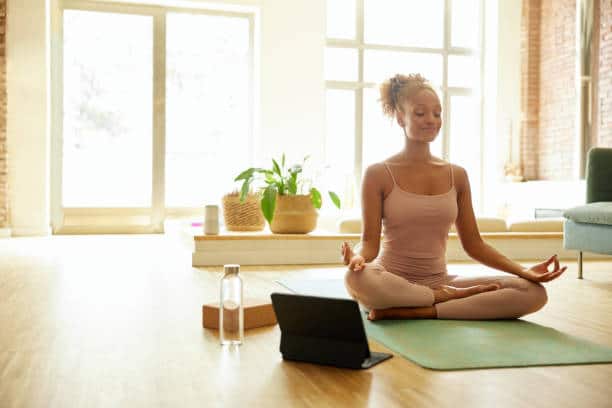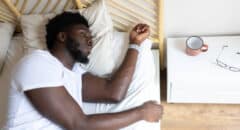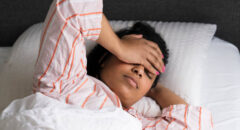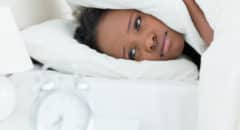
If you struggle to fall asleep or stay asleep, and you regularly experience daytime fatigue, then you might be experiencing something more than just a few sleepless nights. You may be struggling with a sleep disorder called insomnia.
What is insomnia?
Insomnia is the most common sleep disorder in the world, and its effects can be acute (lasts for a few days or weeks), subacute (lasts for a few weeks to a few months), or chronic (lasts for three months or longer). About one-third of adults will face acute insomnia at some point in their lifetime, one in five will have subacute, and one in ten will experience chronic insomnia. Not only are the symptoms uncomfortable and frustrating, but they also come with long-term repercussions on both your physical and mental health, including increasing your risk of heart disease, high blood pressure, and diabetes.
How is insomnia treated?
While there are several ways to treat insomnia, including lifestyle changes, cognitive behavioral therapy, and medication, there has been a rise in exercise-based treatments for the disorder. Studies have shown that exercise can not only improve sleep quality but also decrease sleep disturbances and shorten sleep latency, which is the amount of time it takes to fall asleep.
In a new study from BMJ Evidence-Based Medicine, researchers conducted a systematic review and network meta-analysis of different ways to treat insomnia with physical activity, determining which exercise works best. The study reviewed 22 randomly controlled trials (RCTs) of 1,348 insomnia patients as well as 13 different intervention types.
If you’re looking to improve your sleep quality, committing to one of these four exercises could make a huge difference.

1. Yoga
According to the BMJ study, yoga yielded the largest increase in TST, or total sleep time. It also increased sleep efficiency by 15 percent and overall sleep latency. Due to its focus on mindfulness, bodily awareness, and breathing, yoga is a useful tactic for individuals struggling with insomnia.
Before going to bed, you can practice poses such as the child’s pose (kneeling with your torso lying over your thighs, hands stretched out in front or at your sides), corpse pose (lying on your back with your arms palms up at your sides), or legs-on-the-wall pose (lying with legs extended up a wall and arms at your sides).
It’s recommended to practice yoga at least a few times a week to boost your quality of sleep.

2. Tai chi
Similar to yoga, tai chi can help settle the body with gentle movements, breathing, and meditation. The practice can decrease the sympathetic nervous system, promote emotion regulation, and reduce anxiety. In the BMJ study, this practice improved all sleep diary responses, including total sleep time and sleep latency.
Most notably, tai chi continued to improve insomnia patients’ sleep even six months to two years later. It has the longest-lasting effects of all the exercise treatment strategies. It’s recommended to practice this activity for at least 45 to 60 minutes per day, several times a week. You can either practice alone or with an instructor at a local studio or gym.

3. Walking or jogging
Something as simple as a walk or jog can help to improve your sleep. Not only do these types of exercises boost your mood, but they can also increase the production of melatonin, which regulates the body’s natural sleep-wake cycle. According to the BMJ study, these two activities reduced insomnia severity scores by almost 10 points.
Try taking a walk or jogging for 30 to 75 minutes per day, three to five times per week if possible. You can take this walk break during lunch, before work, or after you get home for a much-needed mental unwind session. If jogging sounds too overwhelming, start with a brisk walk. Eventually, you can work it up to a jog if that feels comfortable for you.

4. Strength training and aerobic exercise
In combination with aerobic exercise, strength training made a significant difference in the study participants’ sleep, including their total sleep time, sleep efficiency, and sleep latency. If you’re new to the idea of either type of activity, don’t worry. The pair doesn’t have to be overwhelming.
The combination of the two simply means endurance plus strength training. Activities like walking, running, swimming, dancing, or cycling are endurance exercises that can not only help with sleep disorders but also reduce your overall risk for heart disease, obesity, and diabetes. If you pair one of those activities with strength and weight training, you’re also helping to build muscle mass, improve bone density, and decrease your risk of injuries.
If you are struggling with insomnia and want to take a more physical approach to treatment, it might be worth it to try one of these exercise strategies. The most recommended approach is physical activity along with cognitive behavioral therapy.
What time of day should I exercise to treat insomnia?
The timing of these activities is important. You might find that exercising at a certain time of day works best for you and your schedule, whether that be early in the morning or after dinner. However, it is recommended to complete these at least one to two hours before bed, as this will give your body enough time to wind down. Exercise raises your heart rate and body temperature, two levels that must decrease for a sound night of sleep. Giving yourself time post-workout before you head to bed can help to lower your heart rate and body temperature in time for sleep. Similarly, do not eat right before you go to bed, as digestion might interfere with your sleep cycle.
The biggest tip? Pick an activity that you enjoy and that you know you can stick with. The more routine this activity can become, the better your sleep will be. It may not be an immediate fix, but after a few weeks, you might begin to see an improvement in your sleep quality.









